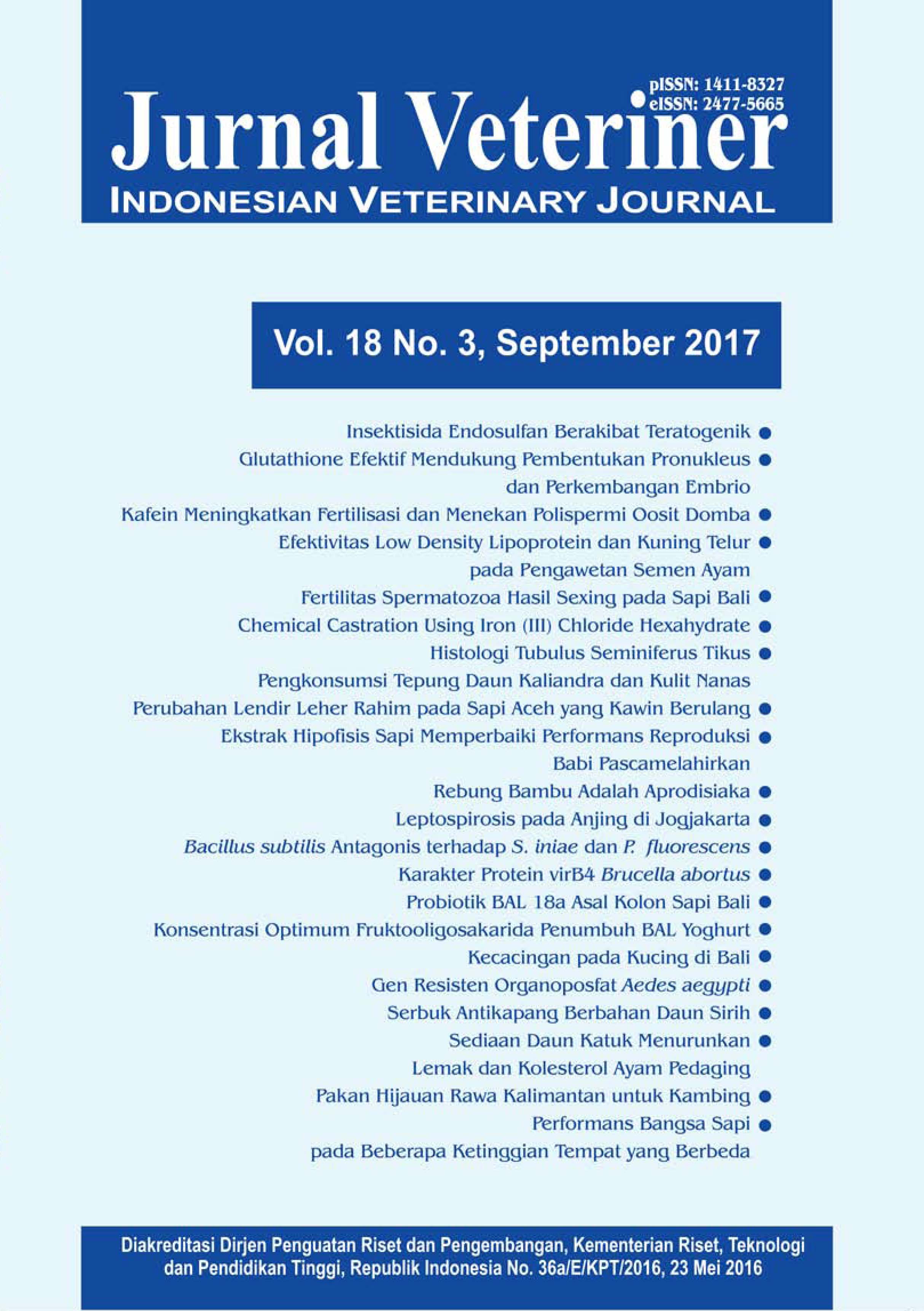Deteksi Gen Resisten Insektisida Organofosfat pada Aedes aegypti di Banyuwangi, Jawa Timur Menggunakan Polymerase Chain Reaction
Abstract
Banyuwangi is still listed as areas not completely free from hemorrhagic dengue fever outbreak. Changes in the genome of Aedes aegypti mosquito as the main vector of dengue virus is estimated to be the cause of difficulty in controlling the disease. Expression of Voltage Gated Sodium Channel (VGSC) genes can be used as an important indication of Aedes aegypti mosquitoes resistancy to certain groups insecticides. The purpose of this study was to detect the Voltage Gated Sodium Channel (VGSC) genes coding in Aedes aegypti using Polymerase Chain Reaction (PCR); as it is related to the mechanism of resistance to organophosphate insecticides groups. Results of resistency by susceptibility test showed that Aedes aegypti mosquito samples from three district ie. Tegaldlimo, Purwoharjo, and Banyuwangi were resistant to malathion 0.8% insecticide (organophosphates group). PCR results detected gen band with 250 bp length, which confirmed that insecticide resistance gene has been detected in the tested samples. Based on this study results, it is recommended to use alternative insecticides apart from organophosphate group for dengue vector control in Banyuwangi.
ABSTRAK
Kabupaten Banyuwangi masih tercatat sebagai daerah yang belum sepenuhnya bebas dari wabah demam berdarah dengue (DBD). Perubahan genom nyamuk Aedes aegypti sebagai vektor utama virus dengue diperkirakan menjadi penyebab sulitnya pengendalian penyakit DBD. Ekspresi gen Voltage Gated Sodium Channel (VGSC) dapat dijadikan indikasi penting sejauh mana perkembangan nyamuk Aedes aegypti resisten terhadap insektisida golongan tertentu. Tujuan penelitian ini adalah untuk mendeteksi gen penyandi VGSC pada nyamuk A. aegypti yang berkaitan dengan mekanisme resistensi terhadap insektisida golongan organofosfat menggunakan teknik Polymerase Chain Reaction (PCR). Hasil uji resistensi susceptibility test menunjukkan sampel nyamuk A. aegypti dari tiga kecamatan di Kabupaten Banyuwangi yaitu Kecamatan Tegaldlimo, Purwoharjo, dan Banyuwangi resisten terhadap insektisida malathion 0,8 % (kelompok organofosfat). Hasil deteksi gen melalui PCR didapatkan band yang muncul dengan panjang 250 bp. Hal tersebut menunjukkan bahwa gen pembawa resistensi insektisida (VGSC) telah terdeteksi pada sampel yang diuji. Berdasarkan hasil penelitian, disarankan untuk pengendalian vektor DBD di Kabupaten Banyuwangi dengan menggunakan alternatif insektisida selain dari golongan organofosfat.



















